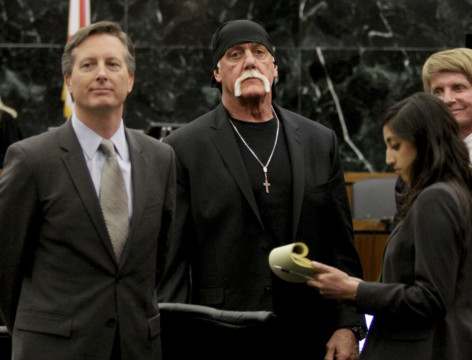
Gawker.com is shutting down, marking the final chapter for a pioneer in online media and one of the most controversial publishers on the web.
Nick Denton, the founder of Gawker Media, told the site’s staff that it will end operations next week, according to a post on its website. Gawker.com’s archives will still be available, Denton said in a memo to employees.
Earlier this week Univision Holdings Inc. made the winning $135 million bid to acquire Gawker Media, which also published the sports website Deadspin, the women’s site Jezebel, the tech site Gizmodo and others. The company was driven into bankruptcy in June after losing an invasion-of-privacy lawsuit to Hulk Hogan. Univision is expected to use Gawker’s other websites to bolster its growing digital footprint, which includes the websites the Root, the Onion and A.V. Club.
In his memo Thursday, Denton confirmed that he won’t be working for Univision and instead will “move on to other projects, working to make the web a forum for the open exchange of ideas and information, but out of the news and gossip business.”
He added: “We have not been able to find a single media company or investor willing also to take on Gawker.com. The campaign being mounted against its editorial ethos and former writers has made it too risky. I can understand the caution.”
Internet truths
Oxford University-educated Denton started Gawker.com out of his New York apartment in 2002 with the stated mission of putting “truths on the internet”. That often meant pursuing stories about powerful figures in media and entertainment that other news outlets wouldn’t touch. The site also became an early training ground for many young journalists.
Gawker Media’s bloggers “have introduced a new style of journalism, sometimes enthusiastic, sometimes snarky, but always authentic,” Denton told staff Thursday. “We connect with a skeptical and media-savvy generation by giving them the real story, the version that journalists used to keep to themselves.”
Gawker’s aggressive approach was often controversial. Last year, it removed a story from its website alleging that a Conde Nast executive tried to arrange a meeting with an escort. Denton said the story was true but he regretted publishing it because its point didn’t “offset the embarrassment to the subject and his family.” Denton later told staff Gawker needed to be “10 to 15 percent nicer.” And last fall, Gawker said it decided to retool as a politics-focused website.
Gawker’s ultimate undoing came when Hogan, whose real name is Terry Bollea, sued the publication for posting a tape showing him having sex with a friend’s wife. He claimed Gawker cost him endorsements and inflicted emotional harm.
The company filed for bankruptcy on June 10, a move that temporarily put the brakes on Hogan’s efforts to collect on the verdict.
Peter Thiel, the venture capitalist who co-founded PayPal and sits on the board of Facebook Inc., made a financial contribution to Hogan’s suit. He and Gawker have a feud that goes back almost a decade after another Gawker website, Valleywag, wrote a story outing Thiel as gay.
In a New York Times opinion column published this week, Thiel said, “I am proud to have contributed financial support to his case,” adding that it’s “ridiculous to claim that journalism requires indiscriminate access to private people’s sex lives.”












